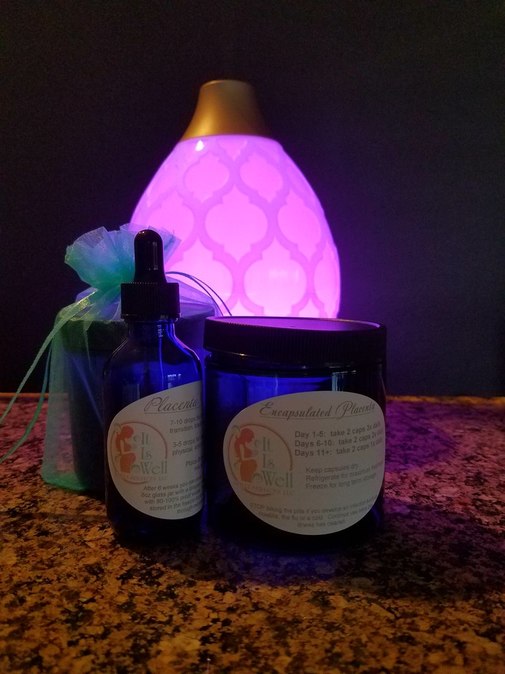Placenta Encapsulation

Human placenta provides a particularly rich source of nutrition at exactly the time a new mother needs to support herself and a new baby. There is a wealth of anecdotal and traditional evidence as well as some scientific research to support the consumption of placenta as a supplement after giving birth.
Your baby’s placenta contains your own hormones and therefore may be considered to be tailor made for you. It may replenish depleted iron and increase energy, reduce postnatal bleeding, help the uterus shrink back. Importantly it may increase and hasten milk production and reduce the likelihood of post-natal depression.
The function of the placenta is to link the mother and baby in the womb. It facilitates the exchange of nutrients, wastes and gases between maternal and baby blood supporting the kidneys, lungs and intestines before birth. The placenta provides endocrine and immune support for the developing fetus. It also provides protection as the fluid that is contained within the placenta works as a protective surrounding for the growing fetus and it forms a barrier against the transfer of infection.
The placenta contains a range of hormones (including Oxycontin, hCG, hCS, progesterone, estrogen, relaxin and CRH) plus vitamins and minerals (including iron, vitamins B6, A, D, E, K, C and B complex). In addition, the placenta contains over 128 growth factors and placenta stem cells. Placenta stem cells are found only in the placenta and are collected after the blood from the umbilical cord is drawn. Stem cells can self-renew or multiply or develop into other types of cells and provide new cells for regeneration of tissue to aid healing. Growth factors stimulate stem cell growth, multiplication and develop into specific types. Placenta growth factors have been found to provide the following benefits which are highly relevant after delivery of a baby:
- Anti-inflammatory
- Pain relief
- Regulation of the autonomous system
- Improve circulation
- Promote wound healing
- Balance hormones
- Improvement of intestine environment
- Pro-tease inhibition
- Improved mood
- Increased energy
- Improved lactation
- Alleviated bleeding
This evidence supports the wide belief that placenta can offer significant benefits at a time when your body and well being may be depleted.
1. Selander J, Cantor A, Young SM, Benyshek DC. Human maternal placentophagy: a survey of self-reported motivations and experiences associated with placenta consumption, Ecol Food Nutr. 2013 Mar;52(2):93-115.